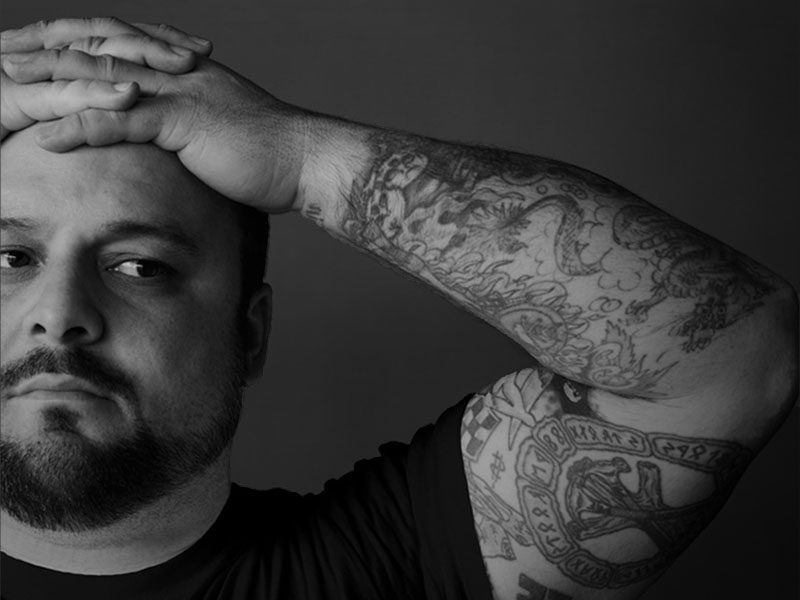Listen to this article
Listen to this article
Loading
Play
Pause
Options
0:00
-:--
1x
Playback Speed- 0.5
- 0.6
- 0.7
- 0.8
- 0.9
- 1
- 1.1
- 1.2
- 1.3
- 1.5
- 2
Audio Language
- English
- French
- German
- Italian
- Spanish
Open text
a map to restoring one’s identity. the focus is on two pillars: love to inform our identity and trustworthiness to form our sense of safety, which together provide our language of existence. “i cannot make sense of anything in my life,” he said. “all of my life, i feel that i have been looking for something i cannot find—something or someplace where i will know i am secure and loved. i guess that is it. i feel locked in by this depression and won’t be free until someone cares enough to give me the key.”. we hear expressions like the one above often. and if we are honest with ourselves, there are even moments when we are locked into our own sense of depression or anxiety and feel the same way. we sometimes get lost along the complex map of life and don’t know exactly where we are, what we are doing here, and, most importantly, who we are. we suppose all of us feel this way from time to time. that’s why we use restoration therapy to restore as much love and trustworthiness to the individual, family, and relationships as possible. we believe love and trustworthiness are the pillars upon which relationships are built. love gives individuals meaning about their identities—it is the relational language where we learn about our uniqueness, worthiness, and belonging. trustworthiness, on the other hand, is the language of action where we learn about the reliable process of giving, the fairness and justice of balancing what we receive, and the openness and vulnerability that leads us to a sense of safety and security in relationships. love informs our identity while trustworthiness forms our sense of safety. but this combination of identity and safety is fragile because it is taught to us by fragile and flawed people in an often unsafe world. when we are confused about who we are, we lose an important compass of what to do and how to be with others. the essentials of identity. if we are to understand how to restore identity, we must first ground ourselves with the knowledge of how it is shaped. we believe everything we know about who we are in the world is shaped by the way we are loved. we are most particularly shaped by this love when we are at our most formative and vulnerable stage of life in early childhood. when we observe parents’ excitement over a newborn, we see them lavishing on the child a type of romantic love where the infant becomes an irreplaceable member of the parent and family. if this love continues, the young child will learn that he or she is absolutely unique in his or her identity. he or she is special like no other, and no one can take his or her place for the parents. does god love us with this type of romantic admiration? we believe so. in ephesians, paul reminds us that god saves us by grace and then makes this remarkable statement: for we are god’s masterpiece. he has created us anew in christ jesus, so we can do the good things he planned for us long ago (eph. 2:10 nlt). we are god’s special creation, filled with uniqueness for the work set before us. but we are also in profound need of knowing that our being is important and of great worth. we grew up in the era of the 1960s, when we were taught that god’s love is unconditional—that god accepts us as we are, no matter what we have done, and welcomes us. although this altruistic love does have some of this idea of unconditional acceptance, clearly the most profound feature of this type of love is found in the sacrificial nature of the love. when a parent sacrifices what he or she needs in order to meet the needs of the child, the child learns he or she is more important and dear to the parents than even the parents’ lives. this infuses the child with an identity that speaks not only to the importance but also to the worth in which he or she is held in relationship. ultimately, it gives profound meaning to our sense of worthiness to know this: for this is how god loved the world: he gave his one and only son, so that everyone who believes in him will not perish but have eternal life (john 3:16). there is no doubt that if an individual feels unique or set apart as well as important and worthy, he or she would have a strong identity. but most of us also received a companionate type of love—a friendship love—in our families. we remember when our daughter started finding her identity strongly around age three. we quickly recognized that while she was our daughter genetically, she possessed a huge number of traits that clearly did not belong to either of us. she was, indeed, her own person from the very beginning. one of the things we did right in raising her is to get to know her personhood just the same way we would get to know a friend. we would take interest in the way she saw life and would have long discussions and observations about how she thought, believed, and behaved. when we are loved with this deep friendship love, we learn that we are not alone and we belong. indeed, if you have a “best” friend, there is a very real sense that you can never be quite alone again because you are always carried in his or her heart, even when separated by time and distance. and this friendship, companionate love does not just happen with family and friends; it also happens with jesus. i no longer call you slaves, because a master doesn’t confide in his slaves. now you are my friends, since i have told you everything the father told me (john 15:15). we are friends with the living god, which infuses our identities with a sense of belonging. mistaken identity: beware of the counterfeit. of course, none of us grew up in a place of perfect family where we were perfectly loved, and none of us has identity that is unflawed. somewhere deep inside of us, we feel we are flawed, plain, unworthy, and alone. the pain of those doubts—and sometimes the overt abuse of love from our families or others—leave us to try to figure out identity on our own terms. as therapists, we often see three devastatingly unsuccessful efforts of individuals trying to compensate for identity confusion. first, we often see folks who are so used to living in the pain of abuse or lack of love that they assume pain as their identities. this is not only painful for these individuals—it is painful for those who come to love them, because the wounds of past identity are inconsolable. it is as if these folks say, “i only know myself in pain, so it is too risky to try something different.” they often reject the love of others because the rut of being alone, unworthy, and unloved is simply too deep to make the effort to correct. second, we often see individuals who try to make an identity based on their performance. the problem here is that i am only unique, loved, or worthwhile if i prove my worth. anything less than perfect performance means my identity is lacking and i am undeserving of love. but even when these performers are close to perfect, they consider themselves only as worthy or remarkable as their last performance. they are, therefore, perpetually in a cycle of out-performing themselves on a stationary bicycle going nowhere. only identity based in the solid confidence of being loved allows a person to make mistakes and relax in the warmth of security. finally, we see hurting people who have flawed identity simply withdraw and try to hide from others. sometimes this hiding is locked in a deep cycle of shaming oneself and keeping others away in order to cover over flaws. other times, this hiding is submerged beneath toxic behaviors or addictions like drugs, alcohol, work, or pornography, where the individual disappears into the behavior to escape the pain of lack of love and clarity. either way, the withdrawing or hiding makes it unlikely or impossible the individual will have any experience of real intimacy or get access to the potential healing of romantic, altruistic, or companionate love. how do we get our identities restored? we all come from backgrounds and relationships that were flawed, threatening our sense of love and safety, but it does not mean that we cannot have our identities restored on sound footing—where we clearly know about our unique specialness, our importance and worthiness, and our sense of belonging to others. restoring identity comes from three potential sources: others, god, and self. we are somewhat backyard astronomers in our family, and one of our “thrills” on a particularly dark evening is to search the heavens in a spot where we know to look for the andromeda galaxy, a faint smudge of light the galaxy emitted 100 million years ago. you see, what we currently experience in viewing the deep sky object in the here and now is the history of the galaxy from the long past. we remind ourselves of this idea when we sit with someone who suffers from an injured identity. most often, they were denied love from their parents, siblings, mentors, teachers, peers, and even spouses in the past, and we experience this damage of the past in the present by seeing severe depression, out-of-control anxiety, anger, or addiction. but one of the wonderful things about human beings is the power they have to speak healing love into each other in the here and now. do good–learn about the restoration therapy model and find resources like “five days to a new marriage” or “five days to a new self” at restorationtherapy training.com. – find retreats and relationship enrichment programs at boonecenter. pepperdine.edu. – discover healthy leader relationship trainings at marriagestrong.net. – consider further education for theology and more at fuller.edu. god puts powerful “others” in our lives to restore our identities, such as key friends and spouses, and even sometimes works miracles in families that were previously damaging to restore identity. but it is clear that god intends the church to be this place of healing love. owe nothing to anyone—except for your obligation to love one another. if you love your neighbor, you will fulfill the requirements of god’s law (rom. 13:8). if we, as the church, take the time and care to speak this love to one another’s hearts, our identities will be restored and we will be able to pass along the restoration we have been given from others. it is not only god’s church that has the power to restore our identity, but also god. even before he made the world, god loved us and chose us in christ to be holy and without fault in his eyes. god decided in advance to adopt us into his own family by bringing us to himself through jesus christ. this is what he wanted to do, and it gave him great pleasure. so we praise god for the glorious grace he has poured out on us who belong to his dear son (eph. 1:4–6). it is indeed a thrilling proposition to realize that from the beginning, god loved us romantically, companionably, and altruistically. we are absolutely and truly known by god as we are and, in the most important act of human history, god pours out grace to us through christ in order to restore our identities in a new relationship. we all have a choice of whom we believe. we can believe in the love that god and others infuse into our lives or we can reject it, preferring to stay in our own struggling and damaged identities. this is the power of the self when it comes to restoring our identity. one of the “truism” statements that has come out of neuroscience is that negative thoughts in the human brain are like velcro, while positive thoughts are like teflon. perhaps it is our nature, but it is much easier for us to remain mired in the identity of the past than to let this restorative love into our perceptions of ourselves. but few choices can be more important. the kind of love that is truly healing and safe to others only comes out of us when we are settled in our own identities of being uniquely gifted, belonging in relationships, and knowing we are strategically important in the loving work of god’s kingdom. those who are dominated by the sinful nature think about sinful things, but those who are controlled by the holy spirit think about things that please the spirit. so letting your sinful nature control your mind leads to death. but letting the spirit control your mind leads to life and peace (rom. 8:5–6). others can love us passionately and sincerely. god can love us sacrificially and unconditionally and welcome us back. but in the end, we have to be involved in the process ourselves to decide whether or not we will choose to believe and restore our identity to the path of life and peace. only then will we be agents of identity restoration to others. edited with permission. find more at fuller.edu/studio.
Open context player
Close context player
Plays:-Audio plays count
a map to restoring one’s identity. the focus is on two pillars: love to inform our identity and trustworthiness to form our sense of safety, which together provide our language of existence. “i cannot make sense of anything in my life,” he said. “all of my life, i feel that i have been looking for something i cannot find—something or someplace where i will know i am secure and loved. i guess that is it. i feel locked in by this depression and won’t be free until someone cares enough to give me the key.”. we hear expressions like the one above often. and if we are honest with ourselves, there are even moments when we are locked into our own sense of depression or anxiety and feel the same way. we sometimes get lost along the complex map of life and don’t know exactly where we are, what we are doing here, and, most importantly, who we are. we suppose all of us feel this way from time to time. that’s why we use restoration therapy to restore as much love and trustworthiness to the individual, family, and relationships as possible. we believe love and trustworthiness are the pillars upon which relationships are built. love gives individuals meaning about their identities—it is the relational language where we learn about our uniqueness, worthiness, and belonging. trustworthiness, on the other hand, is the language of action where we learn about the reliable process of giving, the fairness and justice of balancing what we receive, and the openness and vulnerability that leads us to a sense of safety and security in relationships. love informs our identity while trustworthiness forms our sense of safety. but this combination of identity and safety is fragile because it is taught to us by fragile and flawed people in an often unsafe world. when we are confused about who we are, we lose an important compass of what to do and how to be with others. the essentials of identity. if we are to understand how to restore identity, we must first ground ourselves with the knowledge of how it is shaped. we believe everything we know about who we are in the world is shaped by the way we are loved. we are most particularly shaped by this love when we are at our most formative and vulnerable stage of life in early childhood. when we observe parents’ excitement over a newborn, we see them lavishing on the child a type of romantic love where the infant becomes an irreplaceable member of the parent and family. if this love continues, the young child will learn that he or she is absolutely unique in his or her identity. he or she is special like no other, and no one can take his or her place for the parents. does god love us with this type of romantic admiration? we believe so. in ephesians, paul reminds us that god saves us by grace and then makes this remarkable statement: for we are god’s masterpiece. he has created us anew in christ jesus, so we can do the good things he planned for us long ago (eph. 2:10 nlt). we are god’s special creation, filled with uniqueness for the work set before us. but we are also in profound need of knowing that our being is important and of great worth. we grew up in the era of the 1960s, when we were taught that god’s love is unconditional—that god accepts us as we are, no matter what we have done, and welcomes us. although this altruistic love does have some of this idea of unconditional acceptance, clearly the most profound feature of this type of love is found in the sacrificial nature of the love. when a parent sacrifices what he or she needs in order to meet the needs of the child, the child learns he or she is more important and dear to the parents than even the parents’ lives. this infuses the child with an identity that speaks not only to the importance but also to the worth in which he or she is held in relationship. ultimately, it gives profound meaning to our sense of worthiness to know this: for this is how god loved the world: he gave his one and only son, so that everyone who believes in him will not perish but have eternal life (john 3:16). there is no doubt that if an individual feels unique or set apart as well as important and worthy, he or she would have a strong identity. but most of us also received a companionate type of love—a friendship love—in our families. we remember when our daughter started finding her identity strongly around age three. we quickly recognized that while she was our daughter genetically, she possessed a huge number of traits that clearly did not belong to either of us. she was, indeed, her own person from the very beginning. one of the things we did right in raising her is to get to know her personhood just the same way we would get to know a friend. we would take interest in the way she saw life and would have long discussions and observations about how she thought, believed, and behaved. when we are loved with this deep friendship love, we learn that we are not alone and we belong. indeed, if you have a “best” friend, there is a very real sense that you can never be quite alone again because you are always carried in his or her heart, even when separated by time and distance. and this friendship, companionate love does not just happen with family and friends; it also happens with jesus. i no longer call you slaves, because a master doesn’t confide in his slaves. now you are my friends, since i have told you everything the father told me (john 15:15). we are friends with the living god, which infuses our identities with a sense of belonging. mistaken identity: beware of the counterfeit. of course, none of us grew up in a place of perfect family where we were perfectly loved, and none of us has identity that is unflawed. somewhere deep inside of us, we feel we are flawed, plain, unworthy, and alone. the pain of those doubts—and sometimes the overt abuse of love from our families or others—leave us to try to figure out identity on our own terms. as therapists, we often see three devastatingly unsuccessful efforts of individuals trying to compensate for identity confusion. first, we often see folks who are so used to living in the pain of abuse or lack of love that they assume pain as their identities. this is not only painful for these individuals—it is painful for those who come to love them, because the wounds of past identity are inconsolable. it is as if these folks say, “i only know myself in pain, so it is too risky to try something different.” they often reject the love of others because the rut of being alone, unworthy, and unloved is simply too deep to make the effort to correct. second, we often see individuals who try to make an identity based on their performance. the problem here is that i am only unique, loved, or worthwhile if i prove my worth. anything less than perfect performance means my identity is lacking and i am undeserving of love. but even when these performers are close to perfect, they consider themselves only as worthy or remarkable as their last performance. they are, therefore, perpetually in a cycle of out-performing themselves on a stationary bicycle going nowhere. only identity based in the solid confidence of being loved allows a person to make mistakes and relax in the warmth of security. finally, we see hurting people who have flawed identity simply withdraw and try to hide from others. sometimes this hiding is locked in a deep cycle of shaming oneself and keeping others away in order to cover over flaws. other times, this hiding is submerged beneath toxic behaviors or addictions like drugs, alcohol, work, or pornography, where the individual disappears into the behavior to escape the pain of lack of love and clarity. either way, the withdrawing or hiding makes it unlikely or impossible the individual will have any experience of real intimacy or get access to the potential healing of romantic, altruistic, or companionate love. how do we get our identities restored? we all come from backgrounds and relationships that were flawed, threatening our sense of love and safety, but it does not mean that we cannot have our identities restored on sound footing—where we clearly know about our unique specialness, our importance and worthiness, and our sense of belonging to others. restoring identity comes from three potential sources: others, god, and self. we are somewhat backyard astronomers in our family, and one of our “thrills” on a particularly dark evening is to search the heavens in a spot where we know to look for the andromeda galaxy, a faint smudge of light the galaxy emitted 100 million years ago. you see, what we currently experience in viewing the deep sky object in the here and now is the history of the galaxy from the long past. we remind ourselves of this idea when we sit with someone who suffers from an injured identity. most often, they were denied love from their parents, siblings, mentors, teachers, peers, and even spouses in the past, and we experience this damage of the past in the present by seeing severe depression, out-of-control anxiety, anger, or addiction. but one of the wonderful things about human beings is the power they have to speak healing love into each other in the here and now. do good–learn about the restoration therapy model and find resources like “five days to a new marriage” or “five days to a new self” at restorationtherapy training.com. – find retreats and relationship enrichment programs at boonecenter. pepperdine.edu. – discover healthy leader relationship trainings at marriagestrong.net. – consider further education for theology and more at fuller.edu. god puts powerful “others” in our lives to restore our identities, such as key friends and spouses, and even sometimes works miracles in families that were previously damaging to restore identity. but it is clear that god intends the church to be this place of healing love. owe nothing to anyone—except for your obligation to love one another. if you love your neighbor, you will fulfill the requirements of god’s law (rom. 13:8). if we, as the church, take the time and care to speak this love to one another’s hearts, our identities will be restored and we will be able to pass along the restoration we have been given from others. it is not only god’s church that has the power to restore our identity, but also god. even before he made the world, god loved us and chose us in christ to be holy and without fault in his eyes. god decided in advance to adopt us into his own family by bringing us to himself through jesus christ. this is what he wanted to do, and it gave him great pleasure. so we praise god for the glorious grace he has poured out on us who belong to his dear son (eph. 1:4–6). it is indeed a thrilling proposition to realize that from the beginning, god loved us romantically, companionably, and altruistically. we are absolutely and truly known by god as we are and, in the most important act of human history, god pours out grace to us through christ in order to restore our identities in a new relationship. we all have a choice of whom we believe. we can believe in the love that god and others infuse into our lives or we can reject it, preferring to stay in our own struggling and damaged identities. this is the power of the self when it comes to restoring our identity. one of the “truism” statements that has come out of neuroscience is that negative thoughts in the human brain are like velcro, while positive thoughts are like teflon. perhaps it is our nature, but it is much easier for us to remain mired in the identity of the past than to let this restorative love into our perceptions of ourselves. but few choices can be more important. the kind of love that is truly healing and safe to others only comes out of us when we are settled in our own identities of being uniquely gifted, belonging in relationships, and knowing we are strategically important in the loving work of god’s kingdom. those who are dominated by the sinful nature think about sinful things, but those who are controlled by the holy spirit think about things that please the spirit. so letting your sinful nature control your mind leads to death. but letting the spirit control your mind leads to life and peace (rom. 8:5–6). others can love us passionately and sincerely. god can love us sacrificially and unconditionally and welcome us back. but in the end, we have to be involved in the process ourselves to decide whether or not we will choose to believe and restore our identity to the path of life and peace. only then will we be agents of identity restoration to others. edited with permission. find more at fuller.edu/studio.
Listen to this article

















